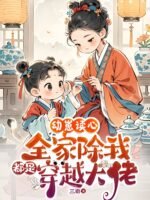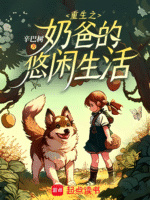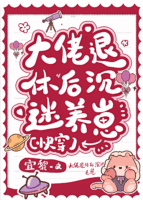Era-C92
by MarineTLChapter 92: Counting the Gains, A Prosperous Household
“What’s the plan?” Xiulan looked at Lin Heng.
“My suggestion is to strip off all the lean meat and make canned pork tomorrow. Keep some of the fat for cooking, and render the rest into lard,” Lin Heng said as he looked at Xiulan.
Canned pork was a method of cooking lean meat and submerging it in lard. Once the lard solidified, the meat was sealed inside, preventing exposure to air and bacteria. This way, it could be preserved for one to two years without spoiling.
This was an old preservation method that people in ancient times came up with to store pork.
“You and I think alike. The lean meat can only be turned into canned pork. But do we really need to render so much fat into lard?” Xiulan looked at the large amount of fat and felt it would be a shame to turn it all into lard.
Unlike modern people who prefer lean meat, people in the 1980s—especially those in rural areas—generally liked fatty meat more. It provided more energy, was easier to store, and gave strength for labor.
That’s why many people today find fatty meat unappetizing, while their parents’ generation can eat it happily. Their preference is directly linked to the hardships they experienced growing up.
“I don’t like eating fatty meat. Keeping a little is enough. I think rendering it into lard for cooking is better. Plus, we can save some of it to make soap and sell it in town for money,” Lin Heng said to his wife. He had already thought of this plan when he carried the wild boar back.
Xiulan nodded and said, “If that’s your decision, we’ll do it your way. Let’s hang up the meat first and start rendering the lard early tomorrow morning.”
The two of them built a rack in the main room to hang the pork, allowing it to air-dry and prevent spoilage.
After finishing up, they washed up briefly and went to bed.
Before sleeping, Lin Heng tossed some vegetable leaves to the young hog badger and a bit of wild boar meat to the wildcat cub.
Having not slept well for two days, Lin Heng wasn’t in the mood to do anything else. He just wanted to hold his wife and rest peacefully.
Compared to passionate love, this kind of quiet and calm companionship, feeling each other’s heartbeats, was even more soothing to the soul.
The next morning, the two of them didn’t wake up until after six. Xiulan had wanted to get up earlier, but Lin Heng, hugging her like a child, wouldn’t let go, so she had to stay in bed a little longer with him.
“That’s enough lazing around. Time to get up,” Xiulan gently removed Lin Heng’s arm from her waist and spoke softly.
“Alright, getting up now,” Lin Heng nodded and sat up to get dressed.
Beside the bed, little Xiaoxia had also woken up. Her big eyes watched them silently, a smile on her face.
It seemed like she was mimicking Lin Heng.
After getting dressed and washing their faces, Xiulan went to fetch the plum blossom fish from the well. Thanks to the cold water, the fish was still fresh and hadn’t spoiled.
“One fish for Xiaoxia, we’ll steam it for her. How do you want to eat the other one?” Xiulan asked as she held up the fish.
“I brought it back for you, so you decide,” Lin Heng replied while wiping their daughter’s face.
“Then let’s make spicy chopped pepper fish,” Xiulan decided after thinking for a moment.
“Sounds good. You cook breakfast, and I’ll take Xiaoxia to feed the chickens and bring the sheep to graze near the house,” Lin Heng said with a smile.
“The chickens you picked are really good. The other day, my eldest brother’s family lost two, but we haven’t lost a single one,” Xiulan praised him.
“Of course! Under normal circumstances, nothing should happen to them,” Lin Heng grinned and took his daughter to feed the chickens.
This had already become Xiaoxia’s daily “game.” If she wasn’t allowed to feed the chickens, she would get upset.
After feeding the grass carp fry, Lin Heng and Xiaoxia fed the chickens and ducks, then took the sheep out to graze. He also played a game with Xiaoxia, teaching her to recognize different plants while speaking their names.
“This is foxtail grass, this is Chinese chive, and this is ox-tongue grass~”
Xiaoxia grabbed the leaves and had already remembered many of them.
“Good job! You got them all right,” Lin Heng praised her and kissed her little cheek in encouragement.
“I kiss Daddy! Daddy eats grass!”
Xiaoxia tilted her head, wanting to kiss her father’s face, and after doing so, she tried to stuff a foxtail grass into Lin Heng’s mouth.
“Daddy won’t eat it, you eat it,” Lin Heng laughed, pretending to put the grass in her mouth.
“No, no! I eat candy~”
Xiaoxia put her hands behind her back and shook her little head.
Lin Heng couldn’t help but laugh. He pinched her chubby little cheeks and said, “So you won’t eat it, but you want me to? You really are my little sweetheart.”
While teaching Xiaoxia about plants, Lin Heng also gathered some pig fodder, mainly hemp leaves and gooseweed.
Hemp leaves came from plants used for making hemp clothing and fabric, while gooseweed was an invasive plant that grew everywhere. During times of food shortages, people had even eaten it, but now it was mostly used as pig feed.
After collecting some pig fodder, Lin Heng took Xiaoxia to look for some wild raspberries since he had promised her yesterday. He couldn’t break his promise.
“Yummy!” Xiaoxia happily munched on the wild raspberries, her dimples showing as she smiled.
While she ate, Lin Heng picked more and put them in a small bag to bring home for her later.
After playing outside for over half an hour, father and daughter finally returned home.
Lin Heng put the picked raspberries on the table for Xiaoxia to eat at her own pace, then threw the pig fodder to the young hog badger.
Hog badgers were omnivores, eating plants as well as animals like lizards and frogs.
Since he didn’t want it running off, he had kept it tied up in the front yard. Now, he used some wooden planks to build a simple two-square-meter pigpen and placed the hog badger inside.
Of course, he didn’t untie the rope—just as an extra precaution.
After finishing, Lin Heng returned to the main room, where Xiaoxia was crouching on the floor, curiously watching the wildcat cub inside a bamboo cage.
The wild boar meat he had left for it last night was already gone, clearly eaten by the cub.
“Roar!”
Upon seeing Lin Heng, the little wildcat opened its mouth wide, letting out a threatening growl.
“Scared!”
The wildcat’s attempt at intimidation didn’t scare Lin Heng, but it did startle Xiaoxia, making her run behind her father.
“Don’t get too close, or it’ll bite your hand,” Lin Heng warned her while picking her up.
“Scared!” Xiaoxia shook her head and tucked her hands into her chest.
“Dinner’s ready.”
Xiulan had finished cooking—two fish, one with chopped chili and the other steamed. The rice was mixed with soup, and the water was boiling; once it came to a full boil, it wouldn’t take long to finish.
“Dear, you eat. I’ll feed Xiaoxia.”
Lin Heng sat down with Xiaoxia in his arms and fed her the steamed fish.
The steamed fish was simply seasoned with salt, with a bit of green onion, ginger, and garlic added during steaming, but the taste was still excellent.
“Is it good?”
Lin Heng looked at his daughter.
“It’s delicious! More!”
Xiaoxia nodded eagerly, her big eyes sparkling.
Lin Heng mainly focused on feeding her, occasionally taking a bite himself. Watching his wife and daughter smile, he couldn’t help but grin foolishly.
A whole one-pound fish was devoured by Xiaoxia, leaving her too full to even eat the rice mixed with soup.
“Don’t save any for me. I’ve already roasted several fish up in the mountains.”
Lin Heng scooped the remaining half fish into Xiulan’s bowl and poured the chopped chili fish into his own bowl.
“I really can’t win with you.”
Xiulan sighed helplessly and finished the remaining half fish.
“You’re not even close to being fat. Eat more! You don’t even weigh a hundred pounds. With your height, even at 130 pounds, you wouldn’t be fat.”
Lin Heng chuckled. He wasn’t very ambitious—just watching Xiulan eat made him happy.
“You’re only 120 yourself. You should eat more too.”
Xiulan said while eating.
Miraculously, today was a sunny day. Two nights ago, the sky was full of dark clouds, and Lin Heng thought it would rain, but it had cleared up instead.
After dinner, Xiulan started rendering pork lard. She cut the lean meat into fist-sized chunks and the fatty meat into slices two to three centimeters thick.
First, she blanched them in water to remove blood foam and impurities, then added water to the pot and simmered the pork fat and fatty meat over medium heat.
“There’s too much! My hands hurt from cutting. One pot won’t fit it all—I’ll have to make another batch.”
Xiulan, both in pain and delight, couldn’t hide her smile as she looked at the large pot of meat.
“Let’s use the crispy pork bits to make steamed buns with white flour or some dumplings.”
Lin Heng suggested with a smile.
“Sure! If you want to eat them, I’ll make them. Anyway, we had a good wheat harvest this year. If it’s not enough, we can secretly buy some more. Our family doesn’t have to worry about a little extra flour now.”
Xiulan nodded firmly, suddenly feeling a bit emotional.
They no longer had to worry about food—it was such an incredible thing.
“I want to eat!”
Xiaoxia didn’t understand what her parents were saying, but she caught the word “eat” and immediately shouted that she wanted some.
Meanwhile, Lin Heng was organizing his recent earnings, checking how much money he had made.
In terms of fur:
One hog badger pelt
One muntjac deer pelt
Three rabbit pelts
Five squirrel pelts
At the lowest market price:
A hog badger pelt was worth 30 yuan
A muntjac pelt was worth 100 yuan
A rabbit pelt was worth 5 yuan each
A squirrel pelt was worth 3 yuan each
Altogether, that totaled 160 yuan, which was equivalent to a year’s income for an average rural family.
Fur prices were good, mainly because they were used for export to earn foreign exchange.
As for mushrooms:
He had collected nearly three pounds of lingzhi mushrooms in total. Though he gathered them bit by bit, the accumulation was impressive.
The biggest haul was from Baishi Valley, and Xiongba, his dog, deserved the most credit.
Even at the lowest price of 40 yuan per pound, the lingzhi alone could sell for 120 yuan.
Other mushrooms included:
Over ten pounds of golden chanterelles
Over eight pounds of green-headed mushrooms
Over one pound of deer mushrooms
These could sell for around 20-plus yuan combined.
There were plenty of porcini mushrooms, too—after drying, he had over 30 to 40 pounds—but no one was buying them, so they would have to be for personal consumption.
For medicinal herbs:
The most valuable was dendrobium officinale. After drying for two days under the sun, he had two pounds and two ounces, which could fetch at least 80 yuan, possibly over 100 yuan if he found a good buyer.
Besides dendrobium, the herbs Xiulan collected and dried weighed over four pounds, worth about 12 yuan.
Other herbs, like creeping oxeye and wormwood, weren’t worth much, only around 4 to 5 yuan.
Adding everything together, even at the lowest purchase price in town, he could make over 430 yuan.
If he went to the city, Lin Heng estimated he could sell everything for at least 600 yuan.
And that wasn’t even counting the 30-year-old softshell turtle he had, which was worth at least 30 yuan.
With this much money, he was basically rich! Even in the city, his family would be considered well-off. A normal urban family only had about 100 yuan in savings.
At this time, farmers weren’t allowed to work in the city. Their main income came from selling medicinal herbs, mushrooms, and other mountain goods.
Rare items like dendrobium and ginseng were out of reach for most people. Matsutake and lingzhi were also hard to find—unless you stumbled upon a large patch or had a dog like Xiongba, most people couldn’t gather much.
The most accessible valuable plants for ordinary people were honeysuckle and morel mushrooms.
Everything else relied on quantity to pile up earnings.
Over the course of a year:
A good harvest could bring in 150 to 160 yuan.
A bad year might only yield 70 to 80 yuan.
The average annual income was around 120 to 130 yuan.
Since herbs and mushrooms were seasonal, even if summer looked fruitful, there was barely any income in other seasons.
Hunting required high skill levels and an expensive hunting rifle, making it inaccessible for most people.
With an annual income of just over 100 yuan, people still had to buy salt, household goods, and medical treatments, leaving them with barely any money for meat.
Lin Heng, with 600 to 700 yuan in cash, was naturally envied by the villagers.
If he spent it all on rice at 0.15 yuan per pound, he could buy 4,600 pounds of rice—or over 800 pounds of white sugar.
His family was now undeniably wealthy.
“Still not enough.”
Lin Heng shook his head. To him, this amount was too little.
Especially since he planned to buy sanghuang mushrooms—the more capital, the better. This wasn’t nearly enough.
After drying everything properly, Lin Heng decided to make a trip to the city soon and exchange everything for cash.
If he left it at home and mice chewed through it, he’d have nowhere to cry.
After finishing up his work, Lin Heng adjusted the two bamboo fishing rods he had made earlier.
“Not bad. In the next couple of days, I’ll give those fish a lesson,” Lin Heng nodded confidently.
The small bamboo fishing rods he had previously made had been adjusted—now they were straight, smooth, and had strong flexibility. Catching stream-dwelling rock bass would be no problem at all.
“You’d be better off just catching them by hand. Fishing isn’t always reliable,” Xiulan commented.
Lin Heng shook his head. “Last time, the problem was with my tools, not me. Next time, it’ll be different. I’ll take you along and show you.”
He was full of confidence for the next fishing trip.
“I’m not interested,” Xiulan said, feeling that fishing wasn’t worth the effort.
“Looks like I’ll have to show off my skills. Next time, you’ll come with me and see for yourself,” Lin Heng said as he straightened a piece of purple bamboo. He had to prove his fishing ability to Xiulan.
He planned to turn these three-meter-long purple bamboo rods into beautiful crucian carp rods and, when the chance came, head to Huangtan River to catch carp and crucian carp.
Meanwhile, the lard was still rendering in the pot—it only needed occasional attention and firewood added.
Xiulan looked after their daughter while chatting with Lin Heng. Life was peaceful and warm.
On the other side of the village, early in the morning, Tian Baishun went to the Li family’s weaving shop to buy a bolt of cotton cloth.
When he returned home, he placed the cloth, a pig’s head, and a small muntjac hide onto three wooden trays.
Then he went out to find two younger relatives to help carry the items.
“Old Tian, what’s all this for?”
Wang Cheng, one of the helpers, asked in surprise.
“Yeah, this must be worth quite a bit,” added another man named Tian Jin.
“Of course, it’s a gift to thank Lin Heng. He saved my life twice on the mountain—I can’t not show my gratitude.”
Tian Baishun explained, then added, “You two, just help me carry the stuff. No more questions. I’ll give each of you ten cents after.”
With that, he picked up the pig’s head and walked ahead, while the other two followed, carrying the cloth and muntjac hide.
“Tian Baishun, what’s all this about?”
His actions quickly attracted the attention of the villagers, who started asking questions.
“I’m going to repay Lin Heng for saving my life,” Tian Baishun said seriously.
“Saving your life?” someone asked, curious.
“I fell into a mud pit while hunting. Lin Heng found me and pulled me out,” he explained, repeating the story as he walked, spreading the news throughout the village.
People quickly formed an impression of him as someone who knew how to repay kindness, which earned him some goodwill.
Knock, knock!
Lin Heng was chatting with Xiulan when knocking sounded from the courtyard gate.
“I’ll go check,” Lin Heng said, putting down the purple bamboo and walking over.
“Who is it?” he asked as he opened the door—only to be dumbfounded by the sight outside.
More than ten people stood there, with even more villagers watching from a distance.
“Tian Baishun, what’s all this?” Lin Heng asked.
“Old man’s here to repay your kindness,” Tian Baishun said with a grin.
Lin Heng: “…?”
“Take this stuff back. The pork you left last night was more than enough,” Lin Heng waved his hand, trying to close the door.
But Tian Baishun stepped forward and said, “If you don’t accept this, do you want me to kneel here in thanks?”
As he spoke, he actually began to kneel.
Lin Heng quickly grabbed him, speechless. “That pork was already enough. I didn’t save you for a reward.”
“If you don’t let me in, I’ll kneel right here,” Tian Baishun insisted.
Lin Heng really wanted to just shut the door and ignore him, but with so many people watching, if he did that, life in the village would become difficult.
“Fine, fine. If you insist on spending your money, go ahead,” Lin Heng sighed, stepping aside and opening the door.
Tian Baishun and his two helpers entered and placed the gifts on the large cabinet in the main room.
“This is just a small token—compared to my life, it’s nothing,” Tian Baishun said with a smile.
Lin Heng didn’t know what to say. He shook his head. “I really didn’t save you for a reward. It was just something within my ability. I couldn’t just watch you die.”
…
Using the most exhausting way possible, he explained that he hadn’t saved Tian Baishun for any material gain—it was simply something he had to do. He couldn’t stand by and watch someone die in front of him.
But rejecting the gifts outright wasn’t an option either. If he did, people would say he was ungrateful. That was just how social etiquette worked.
In the end, Tian Baishun stayed for lunch, while the other villagers left, spreading the story even further.
The tale of Lin Heng saving a life and Tian Baishun repaying the favor quickly spread throughout the village.
Lin Heng’s reputation improved, and people’s impression of Tian Baishun also changed.
After having lunch at Lin Heng’s house, Tian Baishun went home empty-handed—there was no way Lin Heng would return the gifts.
His attitude toward others had also changed. Previously, he had a sharp tongue, always looking down on people and making snide remarks.
Now, he was much more approachable and easygoing, significantly improving his image in the village.
No one knew if this change was intentional or if his brush with death had truly given him a new perspective on life.
But at least to the villagers, it seemed like he had been transformed by the experience.
“What should we do with these?”
After Tian Baishun left, Xiulan pointed to the gifts on the cabinet.
“Just use them,” Lin Heng shrugged. There was no way to return them now.
That said, his impression of Tian Baishun had improved. After all, everyone appreciates someone who repays kindness.
Whether this change was genuine or calculated, Lin Heng wasn’t sure. He had never interacted much with the old man in his past life.
But he did remember that the old man had lived a long life, passing away in his seventies.
Among the three items on the cabinet, the muntjac hide was the most valuable. Although not very large, it could still sell for thirty to forty yuan.
With the other two items and the pork from yesterday, the total value was around a hundred yuan.
“Alright,” Xiulan nodded.
She felt there was nothing wrong with accepting it—after all, in rural areas, it was customary to personally visit and express gratitude for a life-saving favor.
(End of chapter)










0 Comments